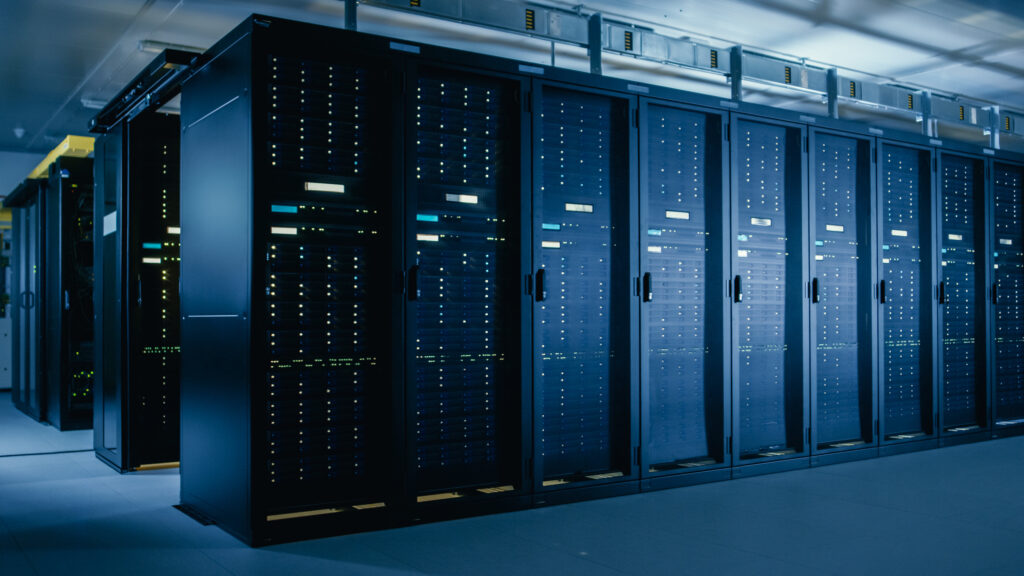The modern digital world relies on a vast network of data centres. They store, process, and serve our ever-growing tide of data. These massive server farms form the foundational infrastructure. It powers everything from social media to e-commerce. However, with great capability comes great electricity usage. Moreover, data centres currently have a voracious appetite for energy. They consume over 1% of global electricity demand making energy-efficient technologies a necessity.

Emerging technologies like AI, IoT, and 5G continue fueling our data-driven economy. So, data centre energy usage is poised to spiral even higher. Without action, the environmental impact threatens to be severe. Thankfully, a wealth of innovative new solutions promises to chart a more sustainable path forward. Cutting-edge technologies offer the possibility of drastically reduced power consumption and emissions from data centres worldwide.
This article will explore a comprehensive view of energy-efficient technologies. These tech. promise to revolutionize the way data centres consume energy. Moreover, we will discover the game-changers that will make data centres more sustainable and efficient.
What can data centres do to increase energy efficiency?
A variety of energy-efficient technologies promise to dramatically cut data centre energy consumption. This is by enhancing computing power and efficiency. These innovations span hardware design, system architecture, and infrastructure. So, let us take a look at these innovations:
Photonic Computing
Photonic computing aims to replace electrons with photons to transmit and process data. Photonic signals dissipate vastly less heat compared to electronic circuits, slashing energy leakage. A company – Optalysys has developed an optical processing array. It achieves 100x better energy efficiency over electronics for certain mathematical functions. Ongoing photonic computing research by Oracle and others could redefine data centre efficiency.
Carbon Nanotube Transistors (CNT)
Silicon transistors are nearing their theoretical limits. So, one of the best energy-efficient technologies allows the building of microscopic transistors with far higher conductivity and efficiency. CNTs also resist current leakage much better than silicon. Computational tests show CNT transistors could reduce energy usage by 50% in CPUs. Furthermore, startups like Anthropic are developing CNT-based AI chips purpose-built for efficiency.
Near-Threshold Computing
This technique operates microprocessors near their lowest possible voltage threshold. Intel and Microsoft have demonstrated 100x improvement in energy efficiency. This is for near-threshold computing versus conventional operation. The tradeoff is reduced performance. However, optimized system-level design can maintain speed for non-critical tasks. This is while reaping large efficiency gains.
Hardware Acceleration
Specialized processors like GPUs, FPGAs, and ASICs can offload select computationally intensive tasks from general CPUs. Furthermore, tailored hardware like AI accelerators achieve far higher energy efficiency. This is achieved by being purpose-built for specific workloads. For eg – Microsoft found AI acceleration reduced server power consumption by over 40% for certain applications.
Software-Defined Power Management
Intelligent software can optimize data centre power allocation in real-time based on workload. These energy-efficient technologies avoid overprovisioning for peak power draws. Microsoft’s Software-Defined Power Management increased server utilization by 40%. That too while reducing energy costs. So, machine learning will enable even smarter automated power optimization moving forward.
So, for businesses looking as to what can data centres do to increase energy efficiency, these were some solutions. Now, let us look at some approaches that move towards sustainable data centres.
Game-Changing Approaches for Sustainable Data Centres
Alongside hardware advances, new techniques in data centre design, construction, and operations promise major efficiency improvements:
Thermoelectric Cooling
Thermoelectric systems apply electric voltage to generate temperature differences for cooling. This solid-state approach eliminates refrigerant-based cooling’s energy overheads. Thermoelectric cooling simplified maintenance while cutting cooling energy usage by 10-30% in tests by University of Leeds researchers and Intel.
Immersion Cooling
Immersing servers in mineral oil or other non-conductive liquids allows direct heat removal. This achieves precise temperature control while using far less energy than air cooling. Trials by Microsoft also found immersion systems reduced data centre cooling energy by a stunning 5-15%.
Waste Heat Reuse
Data centre waste heat can be harvested for district heating and electricity generation. It can also be harvested for industrial processes like water desalination. The Stockholm Exergi data centre provides recovered waste heat. This is to warm thousands of buildings in winter. Waste heat reuse also improves overall energy efficiency while benefitting communities.
Sustainable Construction
Data centres constructed sustainably using cross-laminated timber and other eco-friendly materials have 20% lower power usage for cooling and lighting versus conventional builds. Moreover, renewable materials like mass timber naturally regulate humidity and temperature.
Edge Computing
Processing data locally in micro data centres reduces transmission energy losses. Edge computing improves responsiveness while distributing compute loads. As a result, it enables efficiency gains. Moreover, renewably powered edge data centres near end-users shrink the carbon footprint of data processing.
Wrapping up
Data centres are foundational to our increasingly digital and data-driven lives. But their growing energy appetites and emissions cannot be ignored. Thankfully a wealth of cutting-edge solutions are there. Furthermore, it offers real hope of running data centres more sustainably.
To learn more about these technologies and connect with experts leading the charge, be sure to attend the upcoming Net Zero Data Centre Summit. It takes place in Berlin on 1-2nd February 2024. The event provides an unparalleled opportunity to engage with pioneering minds. It will also help shape an energy-efficient, climate-friendly future for the data centre industry. Register now!





